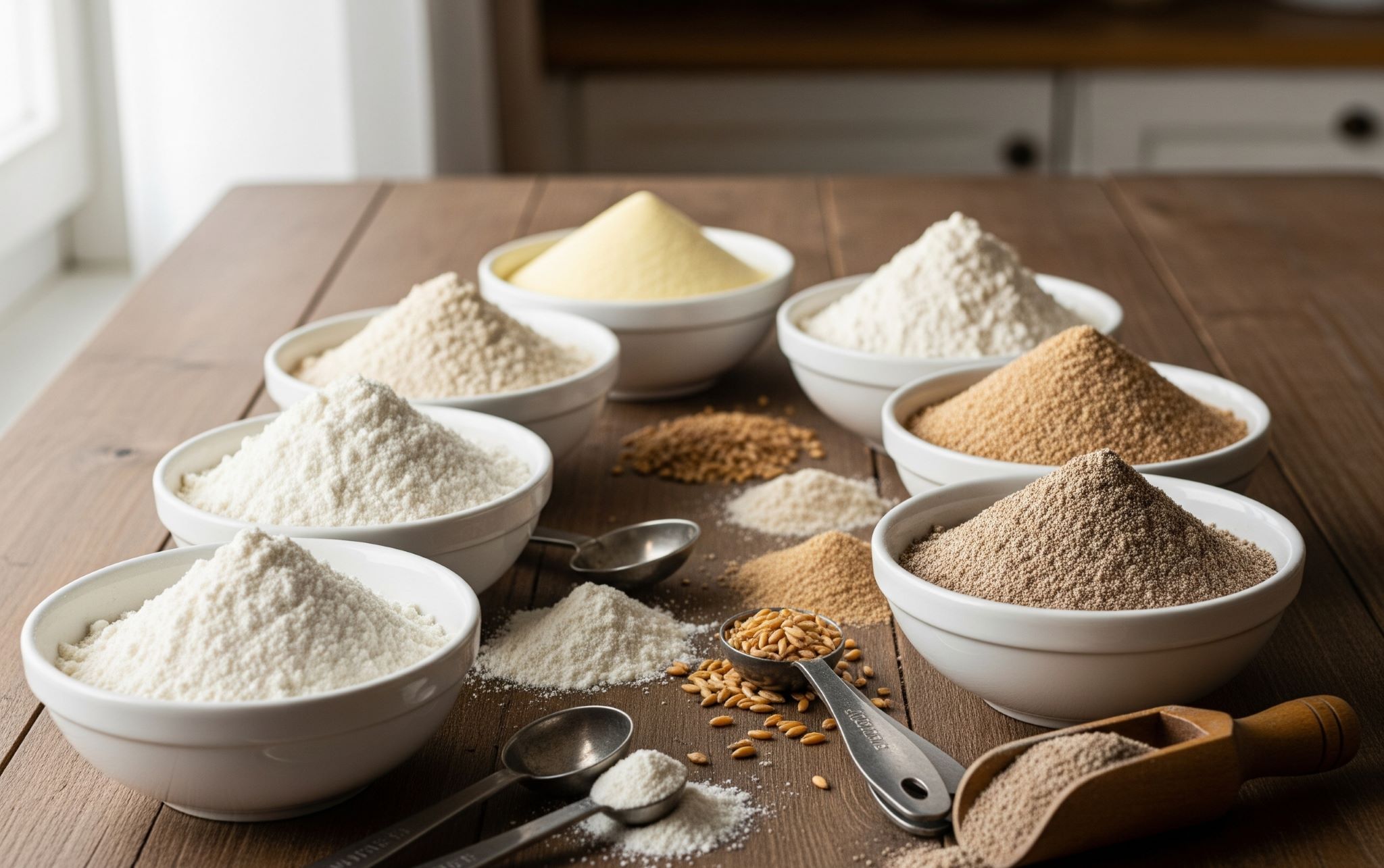Exploring Ancient & Alternative Grains
Add depth, flavor, and nutrition to your loaves.
While modern bread flour is fantastic, exploring other grains opens up a whole new world of flavor, texture, and nutrition. Grains like spelt, rye, and einkorn behave differently than standard wheat, but learning their characteristics is a rewarding journey for any baker.

Common Alternative Grains & Their Properties
Spelt
An ancient wheat variety with a sweet, nutty flavor. Its gluten is more delicate and extensible. Doughs with spelt often feel slack and ferment faster. Start by substituting 15-20% of your bread flour with spelt.
Rye
Famous for its earthy, robust flavor. Rye has very little gluten-forming potential and is high in pentosans, which absorb a lot of water. This makes rye doughs sticky and dense. It also ferments very quickly. A little goes a long way for flavor; try starting at 10-15%.
Einkorn
Considered one of the oldest forms of wheat, with a rich, slightly sweet flavor. Its gluten is very weak, so it's best used in lower percentages (10-25%) to avoid a very slack dough. It creates a soft, golden crumb.
Tips for Success
- Start Small: When first experimenting, substitute just 10-20% of your total flour with the new grain. This lets you get a feel for its properties without drastically changing the dough's behavior.
- Watch the Hydration: Whole grains, especially rye, are thirstier than white flour. You may need to increase your water slightly. Hold back some water from your initial mix and add it as needed.
- Expect Faster Fermentation: Most whole and ancient grains ferment more quickly than refined bread flour because they provide more nutrients for the yeast. Keep a close eye on your bulk fermentation.
- Shorter Mix, Gentler Folds: Grains with weaker gluten (like spelt and einkorn) can be "over-mixed." Keep your initial mixing brief and use gentle coil folds instead of aggressive stretch and folds.
Factor Grains into Your Prediction
The CrumbScience Pro engine allows you to specify the percentage of whole grains in your dough, adjusting its fermentation prediction for more accurate results.
Go Pro and Refine Your Formulas